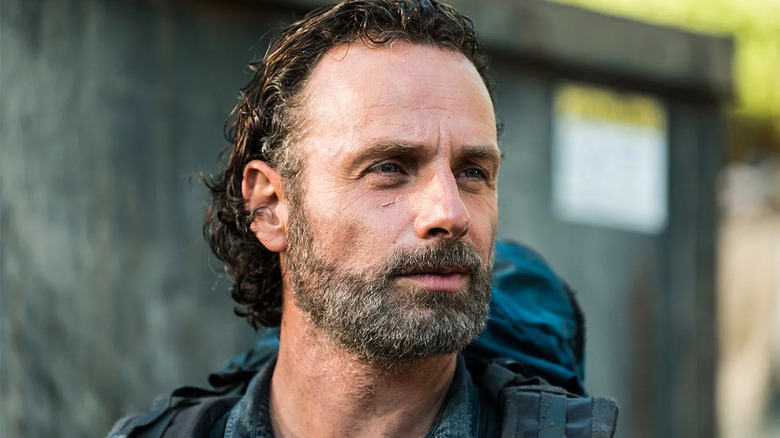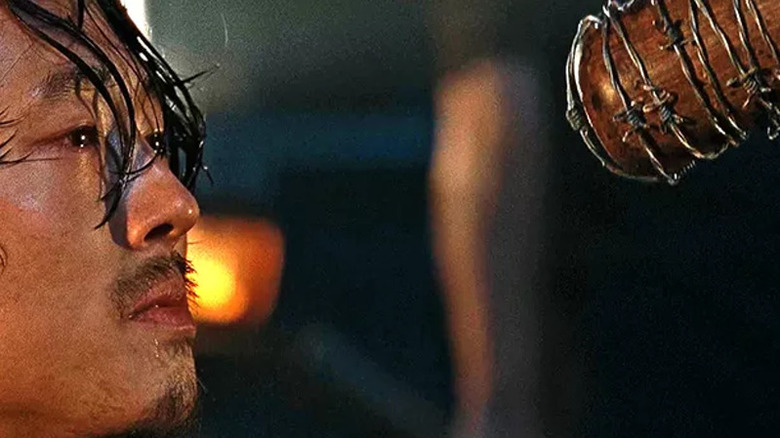The Walking Dead Death That Went Too Far, According To Andrew Lincoln
Some scenes are so infamous that even the actors who appeared in them struggle with their content. This was the case with Andrew Lincoln, who joined many "The Walking Dead" fans in declaring that the death of Glenn Rhee (Steven Yeun) at the hands of Negan (Jeffrey Dean Morgan) was the show's big "jump the shark" moment.
"I do still think [Glenn's death] might have been when we over-egged the omelet. Maybe it was lingering too much," Lincoln told Empire magazine in a retrospective covering his time on the program in February 2024. The very brutal death has since become a notorious turning point for many fans of the show, who consider it a scene that went too far and often their stopping point on any rewatch of the program.
Following that, "The Walking Dead" tried to make Negan a gray-hatted antihero willing to stick his neck out for Glenn's widow, Maggie Greene (Lauren Cohan). His reformation worked well enough to spin him off into his own show, "The Walking Dead: Dead City." Good or not, Negan's introduction to Rick's group proved very traumatic for viewers. And actually filming those scenes wasn't a piece of cake, either. Lincoln went on to explain how arduous performing in "The Day Will Come When You Won't Be" really was.
Andrew Lincoln describes how grueling Glenn's death was
Unsurprisingly, actually shooting the deaths of Glenn Rhee and Abraham Ford (Michael Cudlitz) for "The Day Will Come When You Won't Be" turned into an arduous process for both cast and crew. Andrew Lincoln described filming those scenes as "the most intense nights of shooting I've ever been part of." But he had a lot of praise for Jeffrey Dean Morgan, who, he told Empire, managed to keep his cool under extreme pressure.
Describing Morgan as "one of the nicest guys you're ever going to meet, playing one of the most unpleasant characters," Lincoln added, "He had to do this extraordinary monologue on his first day at work, and everybody was on their knees and weeping when they weren't on camera."
Seeing everyone around him being so committed to their craft and intensely acting out their characters' frustration, loss and pain, Morgan approached Lincoln and asked him if this was normal. Lincoln said he confirmed that it was. The emotional exhaustion that resulted from this made it just one part of Andrew Lincoln's least favorite season of "The Walking Dead" to film.

